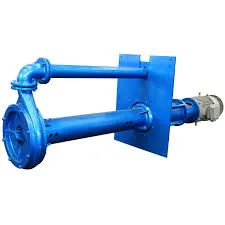English
- Afrikaans
- Albanian
- Amharic
- Arabic
- Armenian
- Azerbaijani
- Basque
- Belarusian
- Bengali
- Bosnian
- Bulgarian
- Catalan
- Cebuano
- Corsican
- Croatian
- Czech
- Danish
- Dutch
- English
- Esperanto
- Estonian
- Finnish
- French
- Frisian
- Galician
- Georgian
- German
- Greek
- Gujarati
- Haitian Creole
- hausa
- hawaiian
- Hebrew
- Hindi
- Miao
- Hungarian
- Icelandic
- igbo
- Indonesian
- irish
- Italian
- Japanese
- Javanese
- Kannada
- kazakh
- Khmer
- Rwandese
- Korean
- Kurdish
- Kyrgyz
- Lao
- Latin
- Latvian
- Lithuanian
- Luxembourgish
- Macedonian
- Malgashi
- Malay
- Malayalam
- Maltese
- Maori
- Marathi
- Mongolian
- Myanmar
- Nepali
- Norwegian
- Norwegian
- Occitan
- Pashto
- Persian
- Polish
- Portuguese
- Punjabi
- Romanian
- Russian
- Samoan
- Scottish Gaelic
- Serbian
- Sesotho
- Shona
- Sindhi
- Sinhala
- Slovak
- Slovenian
- Somali
- Spanish
- Sundanese
- Swahili
- Swedish
- Tagalog
- Tajik
- Tamil
- Tatar
- Telugu
- Thai
- Turkish
- Turkmen
- Ukrainian
- Urdu
- Uighur
- Uzbek
- Vietnamese
- Welsh
- Bantu
- Yiddish
- Yoruba
- Zulu
Telephone: +86 13120555503
Email: frank@cypump.com
Nov . 10, 2024 08:53 Back to list
High Efficiency Filter Press Slurry Pump for Optimal Liquid Transfer Solutions
Understanding Filter Press Slurry Pumps Key Features and Applications
In various industrial processes, the management of slurry can be a challenging task. Slurry, which consists of a mixture of liquid and solid particles, often requires efficient handling and disposal methods. One of the most crucial components in the treatment and processing of slurry is the filter press slurry pump. This article explores the importance, functionality, and applications of filter press slurry pumps in industrial operations.
What is a Filter Press Slurry Pump?
A filter press slurry pump is designed specifically to move slurry efficiently through a filtration system, typically a filter press. The primary role of this pump is to transfer the slurry from the feed point to the filter press, where it will undergo dewatering. The pump must handle thick, viscous mixtures while providing the necessary pressure to ensure optimal performance of the filter press.
Key Features of Filter Press Slurry Pumps
1. Durability and Reliability Given the abrasive nature of slurries, filter press slurry pumps are constructed from robust materials, such as stainless steel or high-grade alloys. They are engineered to withstand harsh operating conditions and have a long lifespan.
2. High Efficiency These pumps provide high head and flow rates, ensuring that slurry is delivered quickly and efficiently to the filter press. This efficiency not only maximizes productivity but also enhances the dewatering process, resulting in drier cake and more liquid recovery.
3. Variable Speed and Flow Control Many modern filter press slurry pumps come equipped with variable speed drives. This feature allows operators to adjust the pump speed according to the specific requirements of the sludge being processed, enabling greater control over flow rates and reducing wear on the pump components.
filter press slurry pump

4. Adaptability Filter press slurry pumps can handle a wide range of slurry types, from relatively low solids content to highly concentrated mixtures. Their adaptability makes them suitable for various industries including mining, wastewater treatment, food processing, and chemicals.
Applications of Filter Press Slurry Pumps
1. Mining and Mineral Processing In the mining industry, slurry pumps are integral to transporting mineral slurries from the crushing and grinding processes to the filtration stages. Proper handling ensures maximum recovery of valuable minerals and minimizes environmental impact.
2. Wastewater Treatment Filter press pumps are commonly used in wastewater treatment facilities to dewater sludge. By efficiently moving sludge to the filter press, these pumps facilitate the removal of water, reducing waste volume and enabling easier handling and disposal.
3. Food Processing In food production, filter press slurry pumps play a significant role in separating liquids from solids during the processing of various products. They effectively manage by-products and allow for the recycling of water, contributing to sustainable practices.
4. Chemical and Pharmaceutical Industries These pumps are also essential in transporting slurries containing chemicals or active pharmaceutical ingredients. Their ability to manage highly viscous slurries ensures the safe and efficient processing of materials in these sensitive environments.
Conclusion
The filter press slurry pump is a vital piece of equipment in many industrial processes, ensuring the effective handling, treatment, and disposal of slurry. With features such as durability, high efficiency, and adaptability, these pumps are indispensable across various sectors, from mining to food processing. Understanding their function and application can lead to improved operational efficiency and sustainability in managing slurry, ultimately benefiting industries and the environment alike. As technology advances, the role of filter press slurry pumps will continue to evolve, becoming even more integral to efficient industrial processes.
-
ISG Series Vertical Pipeline Pump - Chi Yuan Pumps Co., LTD.|Advanced Hydraulic Design&Energy-Efficient Solutions
NewsJul.30,2025
-
ISG Series Vertical Pipeline Pump - Chi Yuan Pumps Co., LTD.
NewsJul.30,2025
-
ISG Series Vertical Pipeline Pump - Chi Yuan Pumps Co., LTD.|energy-efficient fluid handling&industrial durability
NewsJul.30,2025
-
ISG Series Vertical Pipeline Pump - Chi Yuan Pumps | Advanced Engineering&Industrial Efficiency
NewsJul.30,2025
-
ISG Series Pipeline Pump - Chi Yuan Pumps | High Efficiency, Energy Saving
NewsJul.30,2025
-
ISG Series Vertical Pipeline Pump-Chi Yuan Pumps|High Efficiency&Reliable Performance
NewsJul.29,2025










